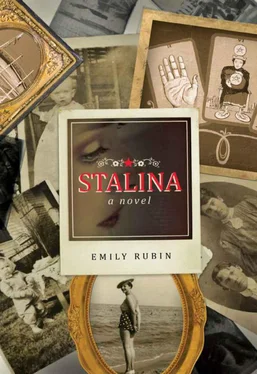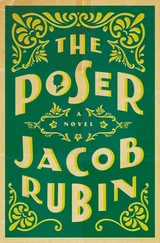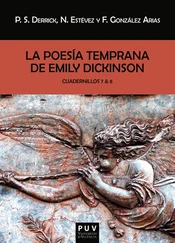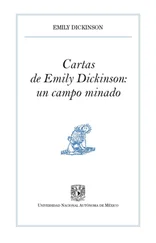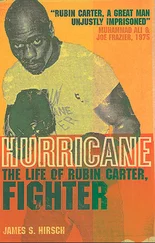“Could it be the crow thinks you are one of hers, my little black cat? The worms are probably healthier than the stuff we feed you.”
The foul-smelling cat food we fed her reminded me of the “tourist’s lunch,” cans of ground fish parts they used to sell in Leningrad in the 1950s when the Baltic Sea had no more fish for the season.
My mother ate the foul-smelling stuff out of some kind of fanatical pride. It was slimy and smelled like a rotten animal carcass. She called it her “fish lover’s paté” and always spread it on soda crackers and drank a glass of vodka to wash it down. I was sure they’d used rotten fish and other refuse in the recipe because when you would puncture the can, there would be a hiss and the stench would fill the room. There were times when I was very hungry and would join my mother in this dreadful delicacy. In order to swallow it, I had to first take a sip of vodka, then hold my nose and place a forkful to the back of my throat. Luckily it was ground up like that crow’s worm, so no chewing was needed. The museums were being gilded with gold while there was nothing for us to eat. Any tourist who dared to eat a forkful of “tourist’s lunch” would have had a true Soviet experience.
* * *
“Svetlana, you would probably love ‘tourist’s lunch.’ You can be sure the cats at the Kremlin were never fed that slop. Let’s go see Mr. Suri and ask him what he thinks about your foster mother, Mme Crow.”
The wind made the pine trees bend, and the crow kept shrieking at me. I don’t think she liked to see me touch Svetlana. Mr. Suri was poring over some paperwork at the desk.
“Good evening, Mr. Suri.”
“Stalina, Amalia called. She wants you to call her.”
“I saw something very strange out there.”
“In room two? What happened? Are they going to sue us?”
“No, they don’t want the attention. Something else, under the trees. Svetlana and the crow—”
“What about under the trees?”
“The crow was feeding worms to Svetlana.”
“Did you go where I sit?” Mr. Suri asked, somewhat agitated.
“You mean where you draw? Yes, near there. The crow adopted little Svetlana.”
“You saw my drawings?”
“The wind blew pine needles over them.”
“It sounded like Amalia needed to talk to you.”
“I’ll call her, but what about the cat and the crow?”
“Maybe we should call a vet to make sure the worms won’t poison her.”
“I’m happy you have concern for Svetlana.”
“I need a good mouser for the motel.”
“You hear that, Sveta? You have to earn your keep.”
“Let her grow up to be a big cat with a big hunger,” Mr. Suri said as he held Svetlana’s black face still in his hand for a little moment.
“She’s getting a taste for raw meat from the worms. I have a friend who is a vet; let’s see what he thinks,” he said.
“Thank you, Mr. Suri.”
“Stalina, what about the guy who fell off the bed?”
“He got a bit carried away on the ‘roller-bed-coaster.’”
“You’re sure he’s not going to sue us?”
“Absolutely not, and besides, he was fine when they left.”
“Call Amalia,” he said, handing me the phone. “She’s at home.”
I dialed. “ Preevyet , Amalia,” I said when she answered.
“ Da…da…. da…. da…spaseeba. Do svidaniya. ”
I put the phone down slowly and quietly.
“Stalina, is everything all right?” Mr. Suri asked.
“It’s my mother; she died yesterday. The rooming house called. They want to know what to do.”
“I’m sorry.” He put his hand on my shoulder.
“Thank you, she was old and…”
“And what?”
“And sad. She missed the old Russia.”
“She missed the Communists?” he asked.
“She believed in our world,” I said.
A heavy weight pushed down on my emptied chest. Mother mourned the loss of Russia’s collective power. Dementia or not, she knew her world was gone, throwing her into a place filled with fear and anger. It was difficult to catch my breath. A car leaving the motel scrunched and spun in the gravel, and the desk in the office shook slightly from the movement.
“Sit.” Mr. Suri pulled up the chair for me. “Is that why she named you Stalina?”
“My name was for protection. Why else would a Jew name her daughter after Stalin? My mother named me Stalina as a joke,” I told Mr. Suri.
“What do you mean?”
“She was playing a joke on him.”
“On Stalin?”
“He wanted to send all the Jews to Siberia, so she named me after him. His obsession for power was fueled with paranoia. He feared many, not just us Jews. My mother hoped he would never harm his namesake. That’s how her mind worked. My mother worshipped and feared him at the same time. My father hated him. I grew up with Stalin’s image in my dreams.”
“Did you ever meet him?” Mr. Suri was very curious.
“No, not really. Only in my dreams…and my nightmares.”
“Did your mother think you would?”
“When I meet someone and they love my name, I know what they believe. In that way it does protect me. Those I can trust hated my name and wanted me to change it.”
“But here you are, safe and untouched, so it must have worked,” Mr. Suri said. He took my hand.
I could not tell if Mr. Suri was touching me out of pity or affection. I was still having trouble breathing. My mother was no longer breathing.
“I would like to know how she died,” I said, staring at a calendar from Domenico’s Pharmacy behind the front desk. It was February 16, 1994. She must have died the day before. The calendar’s picture of the month was of a pharmacist pouring little oval-shaped blue pills through a paper funnel into a brown jar. On the bottom was an advertisement for a drug called Xanax, with a suggestion: “Come out from under that cloud. Talk to your doctor about Xanax.” My eyes started wandering around the calendar. Next to the calendar was a Valentine’s Day card from Mr. Suri’s son. In Russia there are saints for every day, but the picture of a puppy holding a red heart in his mouth with the words “Be Mine” scrawled across the card made no sense to me. We don’t celebrate that day in Russia. We don’t need a special day for the heart. Emotions for Russians are like test tubes of boiling sulfurs. Everything is potentially a drama. I noticed that holidays here always coincide with sales in stores. In Russia we have parades.
* * *
“What are those drawings you make?” I asked Mr. Suri. “Are they plans for something?”
“Changes to our little strip of motels. Let’s not talk about this now, Stalina. What about your mother?”
The well-fed Svetlana was asleep in my lap. I began to feel sad. It felt like a bony hand was reaching into my gut, twisting my insides, and pulling them down to my feet. A sound was forming in the silence. It was a long, exhausted sigh. It sounded so far away, but it was mine, and it grew into a sob.
“Stalina, I am so sorry about your mother,” Mr. Suri said, touching my shoulders. All of a sudden I felt very old. My two and a half years in the USA suddenly seemed very long. My fifty-eight years caught up with me. Death always makes one feel old.
“Tell me something about Russia,” Mr. Suri said very gently.
“You should…I mean, you have to give room one a warning.” I liked that he was trying to get me to stop crying.
“You are so efficient, Stalina. Soon you’ll be running this place.”
“Oh no, Mr. Suri, I would never think of…”
Everything embarrassed me—his attention, my mother’s death, my feelings—it all made me go slightly faint. I focused on the apple sitting on the counter. Mr. Suri always had an apple for a snack. I began to tell him something from my past.
Читать дальше
